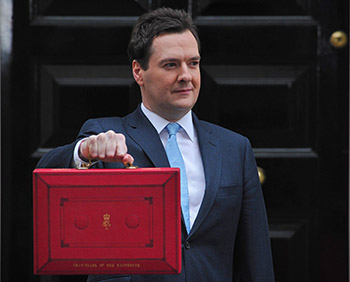GGF Writes to Chancellor Ahead of Autumn Statement
28th October 2014
 |
 |
The GGF has written in response to Chancellor George Osborne’s request for views on areas to include in his Autumn Statement.
In the letter, the GGF highlighted its concerns over three key issues affecting the glass and glazing industry including;
• The lack of Government led incentives for homeowners to install energy efficient windows following the ineffectiveness and slow uptake of the Green Deal and ECO (Energy Company's Obligation).
• The inequality of VAT rates affecting energy efficient glazing. Most energy saving products enjoy a 5% rate of VAT yet energy efficient glass and glazing products have a 20% rate of VAT.
• The red tape that is slowing down growth in the conservatory sector since the Government transferred ownership of private sewers and lateral drains to water and sewerage companies in England and Wales. If a proposed conservatory or extension extends over or near a sewer then the house owner must apply to the relevant water company for a build-over agreement causing delays and costing companies money.
Nigel Rees, GGF Group Chief Executive wrote, “In advance of your Autumn Statement I would urge you to focus on introducing fiscal incentives to encourage householders to make their properties more energy efficient as well as introducing policies or schemes that will boost house building and home improvement.”
The letter also highlights that the GGF has consistently argued for a reduced rate of VAT from 20% to a rate of 5% on the price of energy efficient windows and doors, as well as reducing the current rate of 20% VAT on housing renovation and repairs to a rate of 5% VAT. The GGF detailed this campaign and included the supporting research report conducted by Experian in the first quarter of 2014. The report “An Estimate of the effects of a reduction in the rate of VAT on housing renovation and repair work: 2015 to 2020”, highlights that a VAT rate reduction on housing renovation and repair, from 20% to 5%, could boost the UK economy by more than £15 billion from 2015 to 2020, a significant increase for the Exchequer. The Report also estimates that such a VAT reduction could also create more than 95,000 jobs and save 240,000 tonnes of CO2 from thousands of homes.
Nigel Rees expanded on this, “Energy efficient glazing products are currently subject to the 20% rate of VAT; however, the GGF believes that the list of 'approved' energy efficient products should be widened to include energy efficient windows and doors. This would increase retrofitting on properties and also create a level playing field for energy efficiency products installed in properties. Moreover, a single reduction in VAT on housing renovation and repair work could help the economy substantially as is clearly illustrated in the Experian Report.”
The GGF also believes that more should be done to incentivise householders interested in participating in energy efficiency schemes such as the Green Deal and Energy Company's Obligation. The GGF is supportive of popular finance options such as the Green Deal Home Improvement Fund and would like to see further commitment from Government to incentivise consumers to install energy efficient products in their homes and offices.
Nigel Rees stated, “Windows have been proven to be highly popular with consumers in various energy efficiency trials and as such, should be further promoted in energy efficient schemes to encourage uptake. The Energy Saving Trust has estimated that as much as 23% of a home’s heat energy can be lost through inefficient windows. The installation of energy efficient windows is therefore essential in order to reduce energy loss from homes as part of a 'whole house approach', thereby reducing carbon emissions and household bills and bringing people out of fuel poverty.”
The GGF also pointed out the importance of The Energy Company's Obligation (ECO) to keep people out of fuel poverty and emphasized that energy efficient homes are not merely limited to carbon and cost savings, but also can improve people's general lifestyles and help prevent illnesses caused as a result of poorly insulated homes. The latter point, supports the government’s broader aims to keep people out of hospitals and ease the burden on the NHS budget during winter months.
In the letter, the GGF supports the Government efforts to stimulate growth of the economy through driving the manufacturing and construction industries, however, the GGF did express its concern over red tape. It was outlined to the Chancellor that GGF members estimate that about 80% of every normal home extension or conservatory addition will go over or near what was formerly a private sewer and will therefore need the consent of the relevant sewerage undertaker to extend their property. Despite assurances from the water companies that guidance for consumers would be issued, there has been slow movement on this and there is still no guidance in place three years after the transfer took place. The Chancellor was informed that the GGF is working with the water companies to develop this guidance, but Nigel Rees emphasised, “This process needs to be accelerated in order to make sure consumers have the freedom to extend their houses and generate more business for local construction companies.”
The GGF will now wait until late November/early December to see if Chancellor Osborne will address these issues in his 2014 Autumn Statement.
www.ggf.org.uk
|

